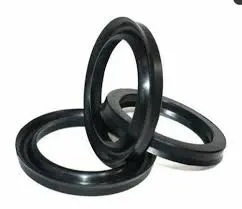9 月 . 13, 2024 10:43 Back to list
mechanical oil seal
Understanding Mechanical Oil Seals Essential Components for Sealing Applications
Mechanical oil seals are vital components widely used in various industries to prevent the leakage of fluids and to protect machinery from contaminants. Though they may seem like insignificant parts, their efficiency and reliability play a crucial role in the overall performance and longevity of equipment.
What is a Mechanical Oil Seal?
A mechanical oil seal, often referred to simply as an oil seal, is a device designed to retain lubricants and prevent oil leakage from rotating shafts. These seals are typically placed between stationary and moving parts and are constructed from various materials, including rubber, elastomers, or thermoplastics. The primary function of an oil seal is to create a barrier that keeps the oil in while preventing external contaminants like dust, dirt, and moisture from entering the machinery.
Types of Mechanical Oil Seals
There are several types of mechanical oil seals, each suited for different applications and conditions. The most common types include
1. Lip Seals These seals feature a flexible lip that rests against the shaft, creating a tight seal. They are widely used due to their simple design and effectiveness in preventing leaks.
2. Rotary Seals Specifically designed for applications with rotating shafts, rotary seals can handle high speeds and pressures, making them ideal for automotive and industrial machinery.
3. V-Rings These are a type of elastomeric seal that generates a sealing force against a rotating shaft. They are often used in conjunction with other seals for added protection.
4. Composite Seals Combining rigid and flexible materials, composite seals provide enhanced durability and improved sealing performance, particularly in harsh environments.
mechanical oil seal

Applications of Mechanical Oil Seals
Mechanical oil seals are critical in countless applications across different sectors, including
- Automotive Industry Used in engines, transmissions, and other rotating machinery to prevent oil leaks and maintain operational integrity. - Manufacturing Employed in various types of equipment such as pumps, motors, and gearboxes, oil seals ensure that lubricating oil remains contained and keeps contaminants at bay. - Aerospace In aviation, these seals are crucial for maintaining hydraulic systems and fuel systems, where leakage can lead to catastrophic failures.
- Marine Applications Mechanisms operating in harsh marine environments rely on resilient oil seals to fend off saltwater intrusion and moisture.
Importance of Mechanical Oil Seals
The effectiveness of mechanical oil seals directly impacts the efficiency and reliability of machinery. A leaky seal can lead to significant fluid loss, resulting in insufficient lubrication, increased friction, and ultimately, equipment failure. Regular inspection and maintenance of oil seals are essential to avoid costly downtimes and repairs.
Moreover, using the right type of oil seal for a specific application is critical. Factors such as temperature, pressure, and the type of fluid must be considered to ensure optimum sealing performance and longevity.
Conclusion
In summary, mechanical oil seals may appear to be small, unassuming components, but they play a fundamental role in the efficient functioning of various machines across diverse industries. Whether in a car engine or an industrial pump, the right oil seal can make a significant difference in performance and reliability. Understanding the types and applications of mechanical oil seals can lead to better maintenance practices and enhanced operational success in machinery.